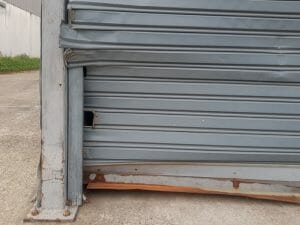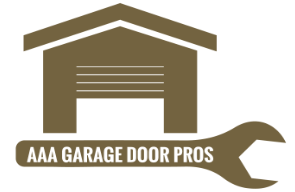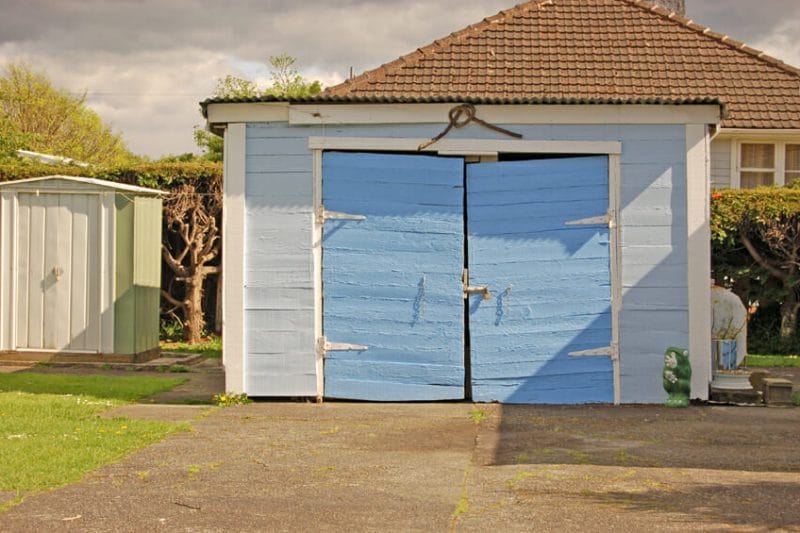Written by Marvin’s Garage Doors and published on https://marvinsgaragedoors.com/.
Do you ever take time and think about what can go wrong with your Garage Door? I hope not. We all take our garage doors for granted as we constantly use the garage to enter and exit our homes every day. However, this constant use can cause damage to happen to our garage doors. This can lead to costly garage door repairs if you are not careful. Your garage door is like any other mechanical structure. And like any other mechanical structure, some things can cause your garage door to break down. When this happens, you’ll need to get an expert to come by to repair it.
What to Do If You Damage Your Garage Door

Garage-door-damage-repair
A garage door is something you shouldn’t have to think about often. When you come home from work, you should expect to push the remote button and have your door open without problems. It should also close without issues too. But, unfortunately, things happen, and this isn’t always the case.
Anything can go wrong with your garage door at any time. It could get stuck open, causing a serious security threat. It can get stuck closed, forcing you to leave your car or storage items outside, leaving them vulnerable to thieves, vandals or the elements. A door that becomes stuck halfway is also a security issue.
If you accidentally backed into your door when trying to leave the garage and damaged panels, stay calm. Many people have done this. Some people have accidentally hit the accelerator instead of the brake. Others have crashed into their doors during the winter after their car slid on ice.
If you encounter damage or something else wrong with your door, you need to address the issue sooner than later. Garage door damage not only hurts your home’s curb appeal, but it can cause a potential safety risk and leave your door susceptible to further damage.
Common Causes of Garage Door Damage
You can experience issues with your garage door for many reasons. Typically, garage door problems boil down to a few simple causes — a technical issue, an obstruction, wear and tear or simply old equipment. The most common causes of damaged garage doors include:
- Spring BreakageThere’s no way around it — springs break. They can break due to the function of use — the more you use your garage door, the sooner they can break. Also, older springs are more vulnerable to breakage than newer ones.
- Cable BreakageThe term “wire rope” refers to the garage door’s lifting cables. While categorized as “aircraft-quality,” they can and will become brittle over time and start to fray. Once they begin to fray, they start to unwind and may snap.
- The Photo EyeThis is a tiny sensor located on both sides of your garage door, usually a few inches from the ground. They project an invisible beam across your garage door, ensuring it doesn’t shut on top of a person or object. It’s an important safety feature but can become misaligned either by an object knocking into one of them, disconnecting the light beams or bad weather or water damage disrupting the circuit.
- Electrical IssuesYour garage door requires electricity to open. And, like with anything, a fuse can blow. You could also have water damage or frayed wires. You should call in a professional to fix electrical door issues.
- Wear and tears with appliances, the mechanisms responsible for opening and closing your garage door can become subject to wear and tear. For example, rollers can wear out. While you can get more years out of premium rollers and ensure your door operates smoothly for years to come, these can also wear out.
- ObstaclesMany people use their garages like storage units. If you pack your garage with all sorts of items, something could get knocked over accidentally and block the photo eye sensors, making it so the door won’t close. Even dust can be an obstacle.
- Getting off TrackGarage doors slide along a metal track which helps them open and close quietly. If you’re having problems opening your garage door, it could be due to an alignment problem. These are only some of the many causes of garage door damage. Having a garage door professional come out right away when you notice something wrong can help preserve it and keep it functioning well and in good condition for a long time.
Repair Options for Garage Doors
Garage door damage repair is often the only solution you need when you have a problem that’s affecting its function. Just because you have some springs broken doesn’t mean you need to replace the entire garage door — you just need to replace the springs. This is true of other components as well such as the sensors, tracks, hinges, rollers, and openers.
The only time you might need a total replacement is when you have massive functional or cosmetic damage. For instance, if you forgot to open the door and backed your car into it. But, garage door experts can repair slight cosmetic damage to your door, like dents, dings a,nd scratches.
You can even, in many cases, replace an individual panel or two instead of replacing the whole door. Again, don’t attempt to make any repairs yourself, even if you believe you know how to fix damaged garage doors. Always call in a professional.
Some common repair options include:
-
- Getting Your Garage Door InspectedIdentifying and addressing wear early is an integral part of the overall care for your door. Besides keeping your garage door clean and lubricating it regularly, adhering to a residential preventative maintenance program can help you keep your garage door running efficiently. You should have a garage door expert inspect your garage door at least bi-annually.Du ring the inspection, the specialist may find minor damage or wear such as:
- Slight surface damage
- Minor damage and discoloration
- The need to touch up the paint
- The need to repaint the entire door
- The need to replace a window
- The need to restain the door
- Getting Your Garage Door InspectedIdentifying and addressing wear early is an integral part of the overall care for your door. Besides keeping your garage door clean and lubricating it regularly, adhering to a residential preventative maintenance program can help you keep your garage door running efficiently. You should have a garage door expert inspect your garage door at least bi-annually.Du ring the inspection, the specialist may find minor damage or wear such as:
Addressing these issues early can help preserve the aesthetics of your garage door. Your garage door can enhance curb appeal, complement the rest of the architecture of your home and completely transform your home’s exterior. When wear and tear begin showing up on your door, it can take away from your home’s beauty.
Warping and cracking are sure signs you may wish to replace the door. The age of the door should be part of your overall decision whether to repair or replace it. If your door is over 15 years old, it’s probably a good idea to replace it.
-
- Having the Garage Door Placed Back on Its Tracks
Hitting the door with a particular force or at a specific angle can cause the door to come off its tracks. When this happens, you’ll no longer be able to open and close the door, and you definitely shouldn’t repair it yourself. It’s best to stay away from it entirely and call a garage door professional to come and place it properly on its tracks.
-
- Fixing a Stuck Garage Door
A few reasons why your garage door would become stuck in one position include:
-
-
- Sensor obstruction: Make sure there’s nothing in the sensor’s path.
- Wheel track obstruction: Try to close the door manually to check for obstructions on the tracks. If that’s not the issue, inspect the tracks for possible damage like bends or dents. Check to see if the door is hanging unevenly. If you notice damage or the door is hanging unevenly, call a professional.
- Garage door opener: If you don’t see anything obstructing the sensors, the problem could be with the garage opener. Press the button on your opener to see if a light comes on. If it doesn’t, and it’s supposed to illuminate, you may just need to replace the battery.
-
A garage door that’s partially opened can pose security concerns and provide strangers access to your home. Try to close the door manually, but without force. Trying to force the door shut can damage the motor, opener, belt, and chain. Your best option is to contact a professional who offers emergency garage door repair services.
In some cases, there could be nothing wrong with your garage door, but the lock instead. People have accidentally locked themselves out without realizing it. If you try to open your door and hear the motor running, see if the locking mechanism or bar is in place. By removing the lock, the door should become free and move. Keypads could also be the issue. Many come with a vacation mode or lock mode that disables the garage door. Ensure the keypad didn’t lock your door.
-
- Repairing a Damaged Garage Door Section
Whether the bottom or middle section of the door is damaged, a professional can replace it promptly. No matter what the cause is, typically you will only need to replace the damaged section and not the entire door. Keep in mind though, if you need to replace two or more damaged sections, the cost can almost be the same as having to replace an entire door.
Also, depending on how old your door is, it’s possible that replacing only one or two damaged sections with the door’s original color, you could end up with a color difference, particularly in the door sheen. You can wax the undamaged sections using car wax to lessen this effect, giving each part of your door an equal shine.
-
- Tending to a Garage Door That Makes a Loud Sound
If your door makes screeching, squealing or grinding noises when opening or closing it, it could indicate an accumulation of debris or dirt in the tracks or lack of lubricant. Don’t use harsh chemicals when removing dirt to clean the tracks. Once you clean the track, coat it with lubricant made particularly for garage doors. You can use WD-40 on the hardware and tracks if you don’t have access to garage door lubricant.
If you’ve tried these steps and you continue hearing the loud noise when using your garage door, it’s time to call in a professional to see if your tracks need repair.
-
- Addressing a Quickly Falling Garage Door
If your door is falling more quickly than it used to, or if it bounces around when using it, it could be due to broken cables or chains. This is a relatively inexpensive repair that should be done by a professional. However, the installation could take some time.
So, when should you repair your garage door or replace it? There are specific considerations to make this decision such as:
-
-
- The cost to repair the door compared to replacing it.
- Whether an expert can fix the problem.
- How long it will take to repair your door.
-
Remember, if you belong to a homeowner’s association (HOA), they might require you gain approval from the organization if you want to replace your door because it may affect your home’s aesthetic greatly. HOAs often have strict rules regarding large cosmetic changes since they could affect the property value. Read more here…
The Bottom Line
A functioning garage door is essential for the safety of your home. Many things can damage garage doors such as natural disasters, bents due to cars, garage track issues and brittle foundation. Always remember to get garage door inspections regularly to prevent long-term issues. A garage door is a complex system that can fail to function for a variety of reasons, many of which might be completely off the radar for most homeowners. Hopefully, this list has illuminated you to the complexities of your garage door. Even so, if you notice any of these problems occurring, you don’t need to handle them yourself, as they can require a specialist’s knowledge to address properly and, more so, safely.
To know more about the common reasons why the garage door got damaged, visit here https://garageservicepros.com.au/common-reason-why-your-garage-door-wont-open-or-close.


No Comments
Be the first to start a conversation